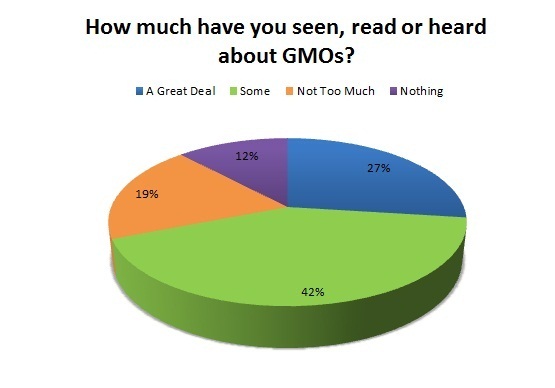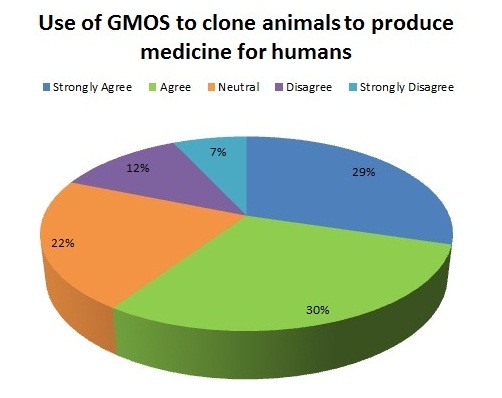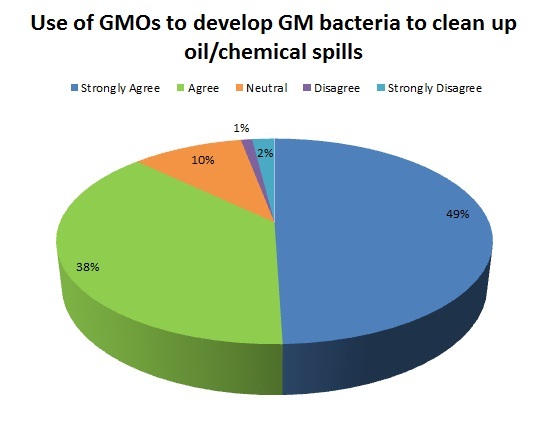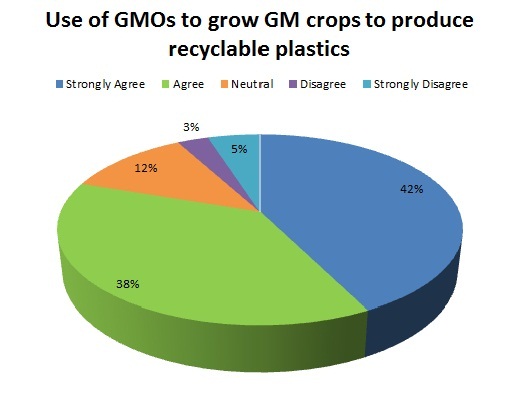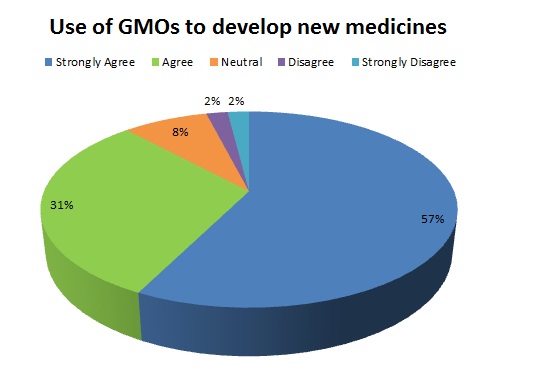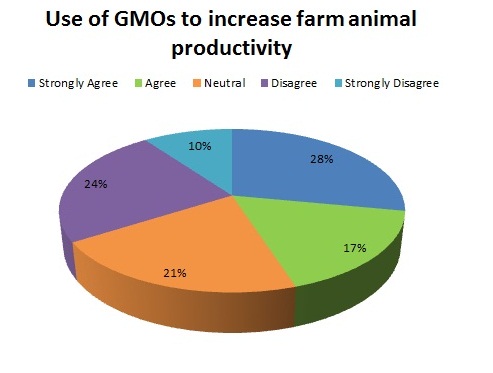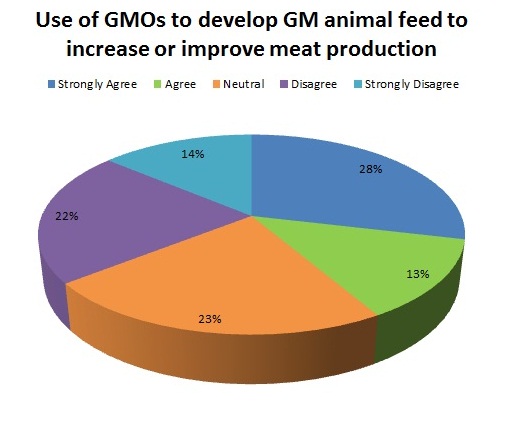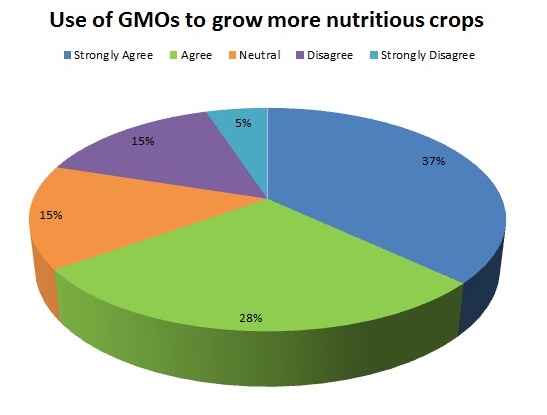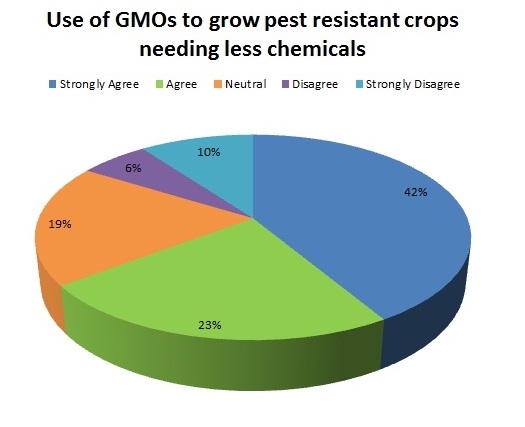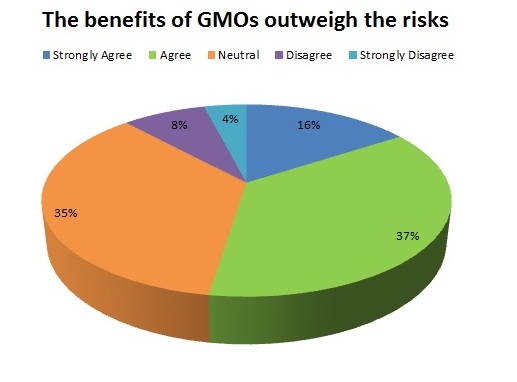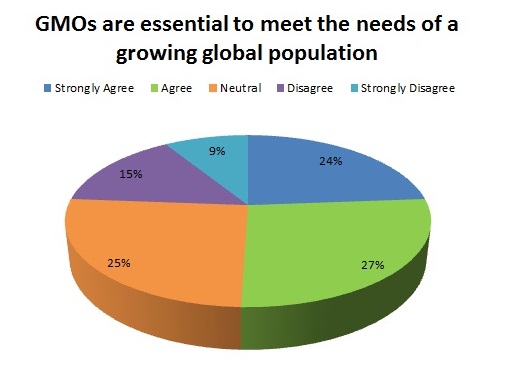Team:Penn State/Human Practices
From 2010.igem.org
(→Penn State iGEM 2010) |
(→Penn State iGEM 2010) |
||
| Line 29: | Line 29: | ||
Overall, we were able to gather a broad array of information that can be portrayed to show the general beliefs of college aged students on the principles of GMOs, research involving genetic engineering, and the use of a lysis device to be implemented in bacteria. | Overall, we were able to gather a broad array of information that can be portrayed to show the general beliefs of college aged students on the principles of GMOs, research involving genetic engineering, and the use of a lysis device to be implemented in bacteria. | ||
| - | [[Image:survey_question_1.jpg| | + | [[Image:survey_question_1.jpg|400px]] |
| - | [[Image:survey_question_2.jpg| | + | [[Image:survey_question_2.jpg|400px]] |
| - | [[Image:survey_question_11.jpg| | + | [[Image:survey_question_11.jpg|400px]] |
| - | [[Image:survey_question_3.jpg| | + | [[Image:survey_question_3.jpg|400px]] |
| - | [[Image:survey_question_4.jpg| | + | [[Image:survey_question_4.jpg|400px]] |
| - | [[Image:survey_question_5.jpg| | + | [[Image:survey_question_5.jpg|400px]] |
| - | [[Image:survey_question_6.jpg| | + | [[Image:survey_question_6.jpg|400px]] |
| - | [[Image:survey_question_7.jpg| | + | [[Image:survey_question_7.jpg|400px]] |
| - | [[Image:survey_question_8.jpg| | + | [[Image:survey_question_8.jpg|400px]] |
| - | [[Image:survey_question_9.jpg| | + | [[Image:survey_question_9.jpg|400px]] |
| - | [[Image:survey_question_10.jpg| | + | [[Image:survey_question_10.jpg|400px]] |
Revision as of 02:28, 27 October 2010
| Home | Team | Official Team Profile | Project | Parts Submitted to the Registry | Modeling | Notebook | Human Practices | Safety | Sponsors |
|---|
Penn State iGEM 2010
This year, Penn State iGEM created a survey about Genetically Modified Organisms(GMOs) in Agriculture. The survey included questions about where and when GMOs should be used, GMOs containing a lysis device, and other questions dealing with the use of GMOs. For this survey, we decided we wanted to get a random sample of college-aged students from around the world. All of the other iGEM teams were contacted and asked to participate in sending our survey to a group of random students from their respective schools. In order to distribute the survey to their schools, the iGEM teams were asked to undergo training required by their school or country necessary to distribute surveys. Of all of the teams, the University of British Columbia, Georgia Tech, Harvard, RMIT Australia, USTC and USTC Software, Uppsala University, The Citadel, and UCSF showed interest in helping us distribute our survey. Unfortunately, mosts schools received few responses, with the University of British Columbia having one, Georgia Tech having none, Harvard four, USTC and USTC Software seven, Uppsala University none, The Citadel one, and UCSF nine. In addition, four were listed as other, which we believe were from UCSF. We believe that they misunderstood our intentions of the survey and instead of distributing the survey to other members of their university, they took it themselves. RMIT Australia did receive permission from their ethics committee to distribute the survey to random students at their school and collected about 100 responses for us. Unfortunately, we were not able to gather their responses in time to include in our survey analysis, but we are really appreciative of their cooperation and their willingness to help and collaborate with us! In order for our team to create and distribute the survey, training by the Institutional Review Board was necessary. Documentation of the students who worked on the survey can be found on our safety page.
Overall, we were able to gather a broad array of information that can be portrayed to show the general beliefs of college aged students on the principles of GMOs, research involving genetic engineering, and the use of a lysis device to be implemented in bacteria.
 "
"
